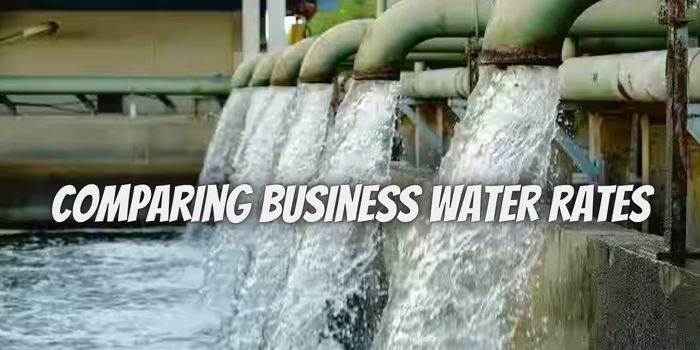If you run a business in the United Kingdom, you’re undoubtedly aware of the importance of cost management. Every penny saved can contribute to the growth and sustainability of your enterprise. One often overlooked area where savings can be made is in the realm of water expenses. Water is an essential resource for businesses, but it’s also a cost that can be effectively managed with the right approach. In this comprehensive guide, we’ll explore how comparing business water rates can help you reduce costs and make more informed decisions about your water supply. So, let’s dive in and discover the potential savings that await you!
Understanding the Role of Business Water Suppliers
Before we delve into the nitty-gritty of reducing costs, it’s crucial to understand the role of business water suppliers in the UK. These are the companies responsible for providing businesses with water services, including sourcing, treating, and delivering water to your premises. While you may not have a choice about your water supplier for some areas, many regions in the UK have already opened up the market to competition. This means you have the power to choose your water supplier, potentially leading to significant cost savings.
The Importance of Comparing Business Water Rates
The water rates your business pays can vary significantly depending on your location and supplier. Rates are typically based on several factors, including the size of your business, water consumption, and the region you operate in. Therefore, it’s essential to compare business water rates regularly to ensure you’re getting the best deal possible. Here are some compelling reasons why comparing rates should be a priority:
Cost Savings: The most obvious benefit of comparing rates is cost savings. By finding a supplier with more competitive rates, you can reduce your water expenses, which directly impacts your bottom line.
Budget Control: Understanding and controlling your water costs helps you manage your budget more effectively. This is especially important for small and medium-sized enterprises (SMEs) where every penny counts.
Environmental Responsibility: Some water suppliers offer environmentally friendly options, such as sourcing water from sustainable sources or promoting water conservation. By choosing the right supplier, you can align your business with your environmental values.
Improved Service: Comparing rates isn’t just about saving money; it’s also an opportunity to assess the quality of service provided by different suppliers. Reliable and responsive suppliers can prevent costly disruptions to your business operations.
Read here : What are harmful impurities found in drinking water?
Assessing Your Water Consumption
Before you start comparing business water rates, it’s essential to have a clear understanding of your water consumption patterns. Accurate data on your water usage will enable you to make more informed decisions and negotiate with potential suppliers effectively. Here’s how to assess your water consumption:
Review Past Bills: Examine your previous water bills to get an idea of your historical consumption. Look for trends or unusual spikes in usage that may require further investigation.
Meter Reading: If you haven’t already, install water meters to track your consumption accurately. Regular meter readings will help you monitor your usage in real-time.
Identify Wastage: Identify and address any areas where water is being wasted in your business. Leaking pipes, inefficient appliances, or wasteful practices can contribute to unnecessarily high water bills.
Seasonal Variations: Consider how your water consumption varies throughout the year. Some businesses may use more water during specific seasons, so factor this into your calculations.
How to Compare Business Water Rates
Now that you have a firm grasp of your water consumption, it’s time to explore how to effectively compare business water rates in the UK.
Research Multiple Suppliers: Start by researching the various business water suppliers in your area. You can use online resources, industry publications, or ask other businesses for recommendations.
Gather Quotes: Contact multiple suppliers to request quotes based on your specific needs and consumption patterns. Be sure to provide accurate data to get the most precise quotes.
Compare Rates and Contracts: Review the quotes and contracts offered by different suppliers. Pay attention to not only the cost per unit of water but also any additional fees, terms, and conditions.
Consider Value-Added Services: Some suppliers offer value-added services, such as water efficiency audits or leak detection. These services can contribute to cost savings in the long run.
Negotiate: Don’t hesitate to negotiate with suppliers. You may be able to secure better rates or more favorable contract terms through effective negotiation.
Check Customer Reviews: Look for customer reviews and testimonials to gauge the reliability and quality of service provided by each supplier. A good track record can be a strong indicator of a supplier’s performance.
The Importance of Contract Terms
When comparing business water rates, it’s not just about finding the lowest price. The terms of the contract you sign with your water supplier are equally important. Here are some contract terms to consider:
Contract Length: Determine how long you are committed to the supplier. Shorter contracts may offer flexibility but could come with higher rates.
Exit Clauses: Understand the exit clauses in the contract. This is essential in case you need to switch suppliers or renegotiate terms.
Price Escalation: Check if the contract allows for price increases over time. A fixed-rate contract may provide more stability in your budget.
Payment Terms: Review the payment terms, including invoicing frequency and payment methods. Ensure they align with your financial processes.
Service Level Agreements: Look for service level agreements that define the supplier’s responsibilities and guarantees regarding water supply and quality.
Making the Switch
If you’ve found a business water supplier offering better rates and favorable contract terms, it’s time to consider making the switch. Here’s a step-by-step guide on how to transition to a new supplier:
Notify Your Current Supplier: Inform your current supplier of your intent to switch. Review your existing contract to understand any notice periods or cancellation requirements.
Final Meter Reading: Arrange for a final meter reading with your current supplier to determine the accurate amount you owe.
Agree on a Start Date: Coordinate with your new supplier to establish a start date for your service. Ensure a smooth transition to minimize disruptions.
Update Your Records: Update your business records with the new supplier’s information and contact details. Ensure that any relevant staff members are aware of the change.
Monitor Your Bills: Keep a close eye on your bills from the new supplier to verify that they align with the agreed-upon rates and contract terms.
Conclusion: Unlocking Cost Savings with Business Water Rate Comparison
Reducing costs is an ongoing endeavor for any business, and one area that shouldn’t be overlooked is your water expenses. By actively comparing business water rates and negotiating favorable contracts, you can achieve substantial savings while maintaining reliable access to this essential resource. Remember that your water consumption patterns and the terms of your contract are crucial factors in this process. So, take the time to assess your usage, research multiple suppliers, and carefully review contracts before making the switch. In doing so, you can navigate the complex waters of business water supply in the UK with confidence, ultimately contributing to the financial health and sustainability of your enterprise.




